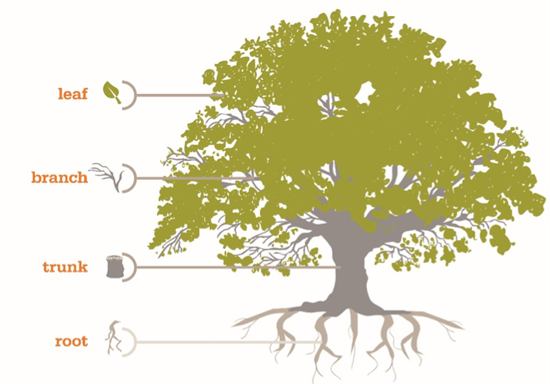Our schedule looked quite busy. Office meeting in the morning, monthly frame inventory adjustments, reordering top sellers, picking the featured designer for the month, full patient load and then there was a sales representative in the afternoon. I had considered having my teammate work with the rep to learn the buying aspect. However, if I delegate the job to her, it will take a long time. I will have to help out, answer lots of questions and nothing will get done. More and more reasons arose why I should just do it myself. And then I remembered “Stop hating on people,” the headline of a blog post from “The Leadership Freak. ”Of course, I don’t hate my teammate, but I am only technically right.”
“You don’t hate your teammates. But, you do something that feels like hate.”
This was the sentence that made me stop and think. By doing it all myself, I make my teammates feel inadequate. They experience rejection, which feels like hate.
Then I remembered all the teachers I have had over the years. They had given me a chance to stumble and fall. They then helped me back up, and, in the process, I learned. The knowledge and experience I have today stem from projects that had been delegated to me in my past.
Susan Scott, author of “Fierce Conversations,” offers a wonderful delegation model: the Decision Tree.

Picture your company as a tree. Each decision made affects the health of the tree to various degrees:

Leaf decisions are small decisions that will not have a major effect on the company. Yanking a leaf off a tree causes little or no harm. With increasing responsibility come branch decisions. Choices made at this level will certainly influence part of the company.

Trunk decisions have a major effect on the company. The manifestation and growth of a business can certainly be influenced by these decisions.

Anything that touches the root of a tree has the potential of doing major damage. The livelihood of a company depends on decisions made at this level.

The analogy of root, trunk, branch and leaf decisions indicate the degree of potential harm, or good, to an organization as action is taken at each level. It takes practice to make good decisions. To have many leaf decisions under your belt will prepare you to make good branch decisions.
There are four key questions that will help you decide when to delegate a task.
- Is there someone else who has (or can be given) the necessary information and expertise to complete the task?
- Does the task provide an opportunity to grow and develop another person’s skills?
- Is this a task that will recur, in a similar form in the future?
- Do you have enough time to delegate the job effectively? Time must be available for adequate training, for questions and answers, for opportunities to check on progress.
If the answer is “yes” to at least some of the above questions, then it could well be worth delegating the job. Considering these questions, my situation became a no-brainer – my teammate was going to see the sales representative. It turned out to be a fabulous move. She took ownership of the process. She learned all about the product, shared it with her teammates and our patients, which increased sales.
Let me summarize the benefits of effective delegation for a business:
- focuses attention and increases productivity
- improves time management.
- empowers employees
- creates team partnership
- creates a learning community – learning always improves the bottom line
Remember, stop hating on people. Give them the opportunity to learn and get engaged. Respect them, believe in them, and hold them accountable. Your rewards will be plentiful.

|
Maggie Sayers is a professional development coach and a Master Optician. Her optical career started over 30 years ago in a family business in Germany.
Since she came to Florida in 1987, she has worked diligently to promote high professional standards in opticianry. Her mission is to help opticians achieve their personal success through serving the public as vision experts.
As a professional development coach Maggie provides education workshops that focus on leadership and personal engagement. Her time management course has inspired many participants to think outside the box, apply newly acquired knowledge and achieve extraordinary results.
Maggie's enthusiasm for opticianry is inspiring and her keen business sense paired with excellent communication skills make her a highly sought after motivational speaker.










